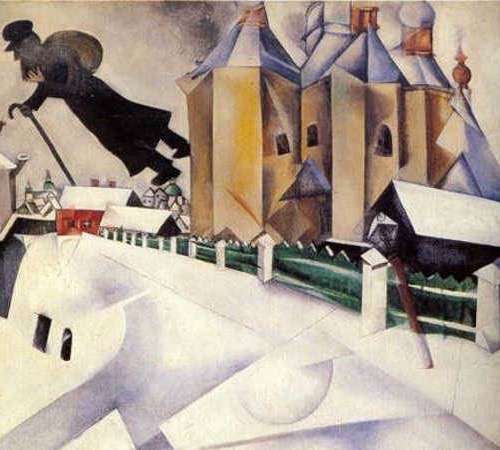“Omnia vincit amor: et nos cedamus amori”: Virgil’s hemistich can induce to like to live the heavy intensity of this special day offered to the memory, that is also known as the “scribe of the soul” (as defined by the Aristotelian aphorism to exalt the powerful and perpetual word).
The word, written or painted, transmits the feelings perceived by the man who is endowed with voice from the birth in order to speak and, so, to grow.
The passionate love unites Bella Rosenfeld and Marc Chagall and covers the life of two Belarusian Jewish artists of the 20th century. Bella is the pretty daughter of a wealthy family, Marc is the bohemian artist: the love at first sight dates back to 1909 and dissolves any obstacle to build the love story, delicate and intense, perpetuated by the third art.
In 1915, Chagall, who had already fled from Tsarist Russia under the influence of the progrom, returned home to marry his girlfriend: Ida’s birth strengthened the marriage. The lively love resists today and floats on the clouds painted on the canvases: the flight of Bella and Marc is spread to the masterpiece “Over the Town” (1918). The flight is repeated on the work “Over Vitebsk” (1914) to define the assiduous exile suffered by the Jews.
This sweet story was exposed by the author Bruno Volpi at the Marengo auditorium: the speaker, in dialogue with the journalist Massimo Taggiasco, narrated the novel “Chiaroscuro di donna” dedicated to the combative nature of protagonists refractory to the grandeur of five famous partners: Giovanni Boldini, Marc Chagall, Edouard Manet, Pablo Picasso, Auguste Rodin.
The talk is included in the “Thursday at Marengo” calendar promoted by the Province of Alexandria together with the Cathedra Alexandriae and the Union of European Journalists and Communicators (Ujce).
